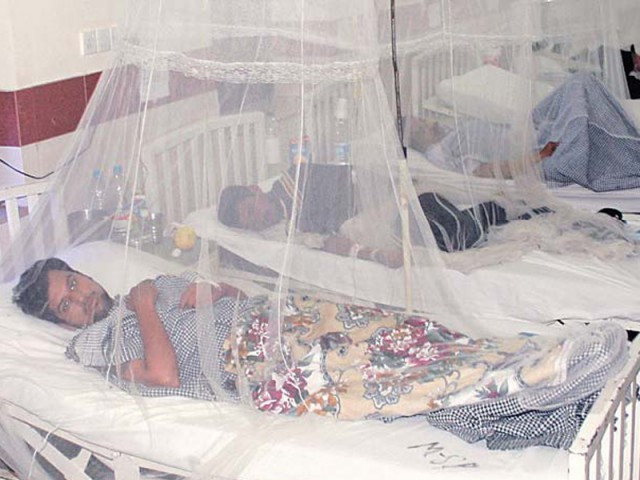Punjab sees spurt in dengue cases
Caseload soars past 1,000, many hospitals remain ill-prepared

The spread of dengue fever is accelerating across Punjab with health officials reporting 22 new confirmed cases in the past 24 hours. According to the health authorities, the total number of confirmed dengue patients across the province has climbed to 1,055, raising alarm about an escalating public health challenge as the peak mosquito breeding season continues.
Lahore remains a key hotspot, where one new confirmed patient was registered on Monday, raising the city's total to 166.
The health authorities warned that the number of suspected cases in Lahore is also rising at an unsettling pace, increasing fears of a surge in infections as temperatures and humidity create ideal conditions for the aedes aegypti mosquito, the primary carrier of the virus.
Medical experts caution that if preventive measures are not strictly enforced, the city could witness a spike in cases over the coming weeks. "This year's trend indicates a higher risk than previous seasons," a senior health official said, urging residents to remain vigilant.
Despite the growing threat many hospitals remain ill-prepared. Several major healthcare facilities have yet to activate dedicated dengue counters, forcing many patients to seek treatment at private hospitals and clinics, where costs can be significantly higher. Families of infected patients expressed frustration over the lack of timely testing and treatment in government hospitals.
Punjab Healthcare Minister Khawaja Imran Nazir acknowledged the seriousness of the outbreak and emphasised that community cooperation is essential to control the spread. He urged residents to follow dengue prevention guidelines, including preventing stagnant water in homes, applying mosquito repellent lotion, and conducting indoor and outdoor insecticide spraying.
"Preventing the breeding of dengue mosquitoes is critical," the minister emphasised in a statement. "We are intensifying dengue surveillance and destroying larvae on an emergency basis to break the chain of transmission."
Health workers have been deployed to conduct door-to-door inspections in high-risk areas, and teams are being tasked with fumigation drives. However, public health advocates warn that these efforts will be ineffective unless citizens also take proactive measures to reduce mosquito breeding sites.
Health officials also also stressed that precautions such as using mosquito nets, wearing full sleeved clothes, and keeping living spaces dry remained the most effective defences against the virus.
Meanwhile, a meeting was held in the specialised healthcare and medical education department to formulate a procedure for the use of co-ablation technology for cancer patients. In this regard, medical experts shared their valuable suggestions and opinions.
King Edward Medical University VC Professor Mahmood Ayaz said the technology will be especially useful for patients whose disease is diagnosed in the early stages.





















COMMENTS
Comments are moderated and generally will be posted if they are on-topic and not abusive.
For more information, please see our Comments FAQ